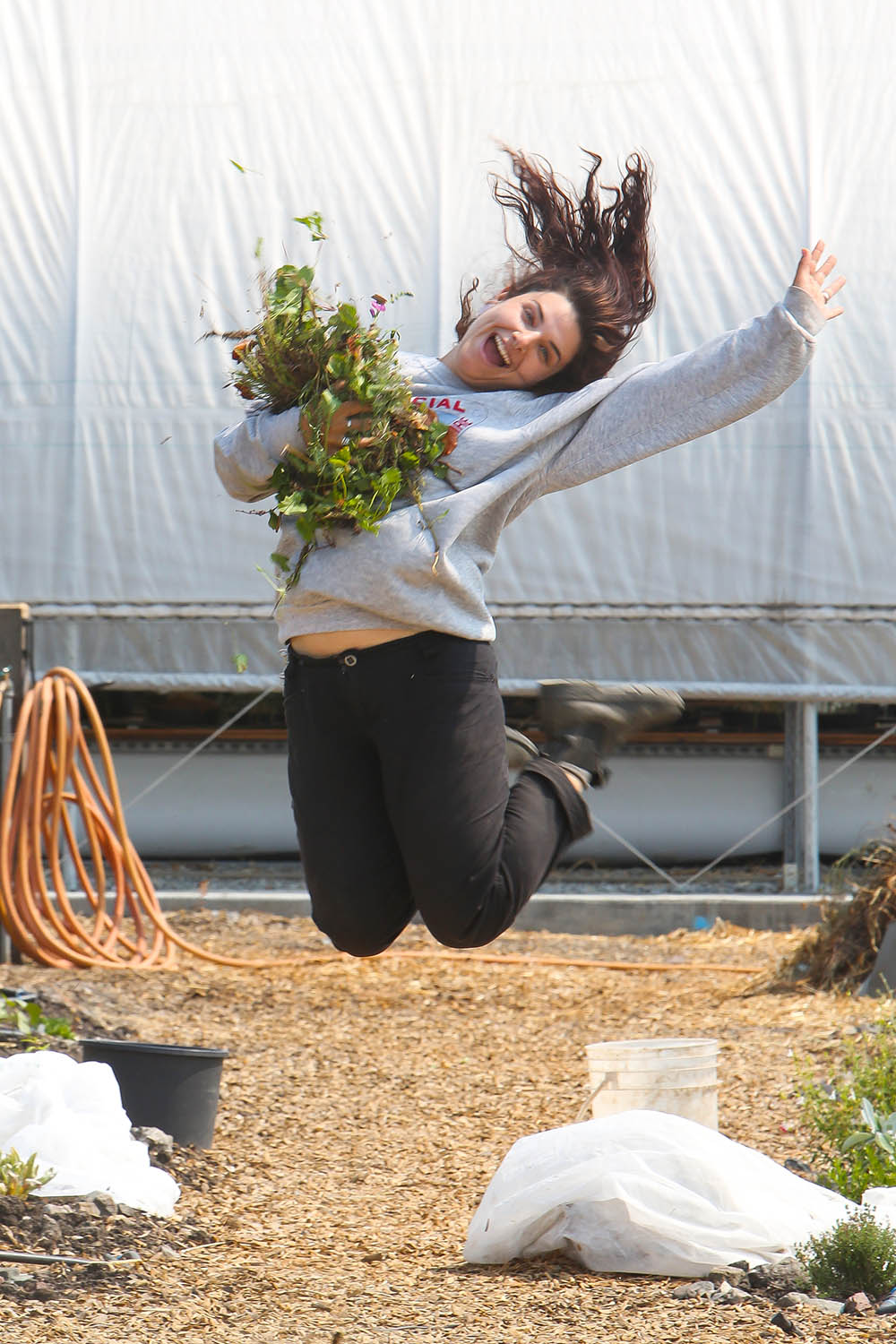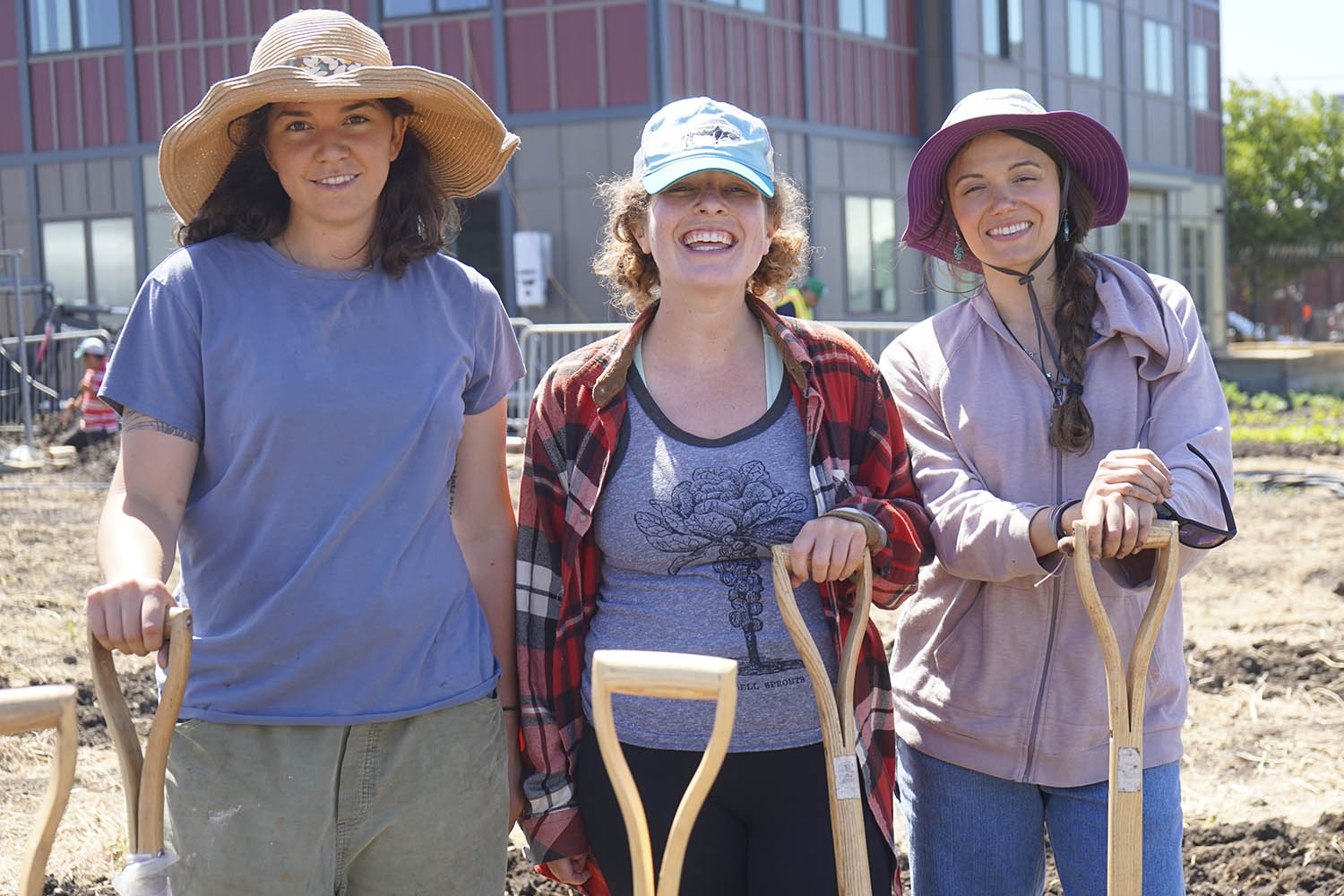Urban Agriculture
Practicing sustainable agriculture in an urban area can be a powerful tool in supporting the health of social, economic, ecological and environmental systems. Through this series of classes Urban Adamah fellows learn ways to grow, process, and distribute food within a whole-systems framework. This curriculum is designed to give fellows a foundation of knowledge and skills on a range of topics fundamental to starting and running a farm in an urban context.


We will explore three questions:
How does one sustainably grow food in an urban setting?
Fellows learn the science, skills, and techniques for successfully growing organic food in the Bay Area and in an urban setting. Classes introduce fellows to a range of farming methods and design techniques, as well as methodologies for assessing and planning for the needs and yields of a particular climate and place. These classes also give fellows a taste of various animal husbandry practices, as well as alternative farming techniques. Fellows are trained through both formal/frontal and hands-on classes and take increasing responsibility for managing the farm as the fellowship season progresses.
How does one understand food injustice within larger social, economic, racial and political contexts and movements?
Fellows learn the issues affecting access to fresh food in the East Bay and explore the social, political, and economic implications of the disparities that exist.
How can we build self-sufficiency in ourselves and in our communities?
Fellows learn essential skills for creating farm-based products to support the medicinal, nutritional, and functional needs of our communities. These classes could include hands-on workshops in a variety of topics such as cheese making, herbal medicine, fermenting, bread making, or canning. We explore these skills as they relate to ideas of sovereignty, anti-consumerism, community-building and empowerment, and resource-sharing.
Urban Agriculture Curriculum
Potential Urban Agriculture Classes Include:
Soil Science 101
Plant Propagation: Seed-Starting & Asexual Propagation Methods
Compost: Closing the Loop
Crop Plant ID & Taxonomy: Exploring Family Relationships
Animal Husbandry: Anatomy, Needs, Behaviors, & Ethics
Integrated Pest Management: The Farm as an Ecological System
Bee Keeping 101
Herbal Medicine
Small-Scale Cheese & Yogurt-Making
Introduction to Aquaponics
The History of Food Injustice in the East Bay
Challah Bake
Tool Safety & Self-Care of the Sadeh
Method Behind the Madness: Crop Planning for Greater Yields
Fermentation & Pickling: Gettin’ Funky with Lactobacilli
The Alchemy of Wood Fire Bread Baking
Seed-Saving
